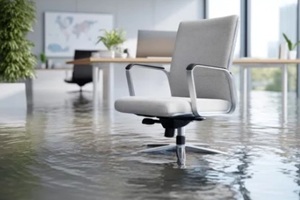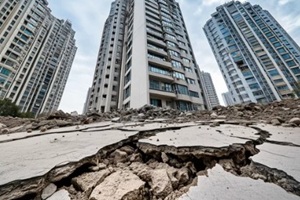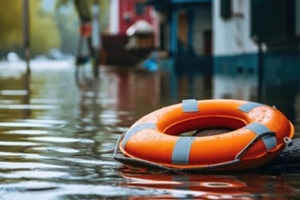 The stunning landscapes of Hawai‘i are an asset to any business owner; yet, these landscapes bring risks in the form of tropical storms, floods, wildfires, earthquakes, landslides, and more. Due to its isolated geography and limited supply chain access, Hawai‘i’s weather often results in lost assets, lost income, and even closures. The 2023 Maui wildfires, for example, cost businesses as much as $10 billion when accounting for both the damage to property and the interruptions caused by tourism and supply chain disruptions.
The stunning landscapes of Hawai‘i are an asset to any business owner; yet, these landscapes bring risks in the form of tropical storms, floods, wildfires, earthquakes, landslides, and more. Due to its isolated geography and limited supply chain access, Hawai‘i’s weather often results in lost assets, lost income, and even closures. The 2023 Maui wildfires, for example, cost businesses as much as $10 billion when accounting for both the damage to property and the interruptions caused by tourism and supply chain disruptions.
However, despite weather troubles being well-documented for businesses across the islands, many business owners hold false assumptions about how their business insurance policies will protect them in the event of a disaster.
When misconceptions can lead to costly coverage gaps, business owners in Hawai‘i need to know the truth behind these six myths concerning natural disaster insurance.
Common Myths About Natural Disaster Insurance
Myth #1: My General Property Insurance Covers All Natural Disasters
General property insurance covers damage caused by theft and fires, but many policies limit coverage for damage caused by weather events such as hurricanes, earthquakes, and floods. For example, standard policies often exclude coverage for weather-related damage in high-risk areas, such as windstorm damage coverage for coastal businesses. Businesses with these risks need specific endorsements with named perils; otherwise, they may be required to cover the costs of damage caused by such events.
Myth #2: I Don’t Need Flood Insurance Because I’m Not in a Flood Zone
According to FEMA, 25% of flood claims occur outside of designated high-risk flood zones. In Hawai‘i, this is especially significant since intense rainfall often overloads stormwater systems and inland streams, triggering flash floods that can impact businesses anywhere on the islands.
Myth #3: Business Interruption Insurance Automatically Covers Natural Disasters
Business interruption insurance covers lost income when certain events cause an unexpected closure. However, the policy will designate specific disruptions as “covered events,” and many policies omit common causes of damage. For example, earthquake and flood coverage usually need to be purchased separately.
Myth #4: Hurricanes Are Only a Risk During a Few Months Each Year
Hawai‘i’s official hurricane season is June to November, but businesses should be prepared for potential hurricane-related damage all year round. Storm systems can appear at any time and many insurers freeze policy changes once a storm has formed. As such, having proactive storm coverage, even during Hawai‘i’s off-season, is essential.
Myth #5: Earthquake Insurance Isn’t Necessary in Hawai‘i
 This myth is incredibly dangerous since Hawai‘i is one of the most active earthquake sites in the United States. Businesses on any of the islands can be impacted by earthquake damage, especially on Kīlauea and Mauna Loa. Despite this, most disaster insurance policies omit earthquake coverage without add-ons.
This myth is incredibly dangerous since Hawai‘i is one of the most active earthquake sites in the United States. Businesses on any of the islands can be impacted by earthquake damage, especially on Kīlauea and Mauna Loa. Despite this, most disaster insurance policies omit earthquake coverage without add-ons.
Myth #6: Insurance Will Fully Rebuild My Business After a Disaster
Simply having a business insurance policy in Hawai‘i does not guarantee a rebuild after a disaster. The policy’s specific deductibles, coverage limits, exclusions, and named perils will determine how much is covered and what gaps could be left by common policy omissions. Many businesses are even less insured than they realize since outdated property valuations or underinsured renovations could lead to policy blind spots that result in shortfalls during the rebuild.
What Business Owners Should Do Instead
This brief list can help owners prepare their businesses for natural disasters:
- Review the named perils and exclusions listed on the general property insurance
- Make sure interruption insurance covers the costs of both the damage and downtime
- Develop a disaster recovery plan that includes document filing, inventory checks, digital backups, and emergency contact procedures
- Conduct annual policy reviews, particularly before storm season or following a property improvement
- Work with a local insurance advisor to recognize the relevant risks impacting your business and prepare with adequate disaster insurance
Common Questions from Hawai‘i Business Owners
Is flood insurance mandatory for businesses in Hawai‘i?
Most businesses are not required to have flood insurance, though it is recommended. However, the exceptions are businesses in federally designated high-risk flood zones or Special Flood Hazard Areas (SFHA), businesses with mortgages or loans from federally regulated lenders, and businesses whose lenders require flood insurance as a condition of signing the loan.
How do I know if I’m underinsured?
An experienced broker can conduct a cost analysis and help you update your policy regularly to reflect changes such as significant purchases, property renovations, staffing changes, or inflation.
Will insurance cover supply chain disruptions during a disaster?
Insurance covers supply chain disruptions when the policy includes business interruption coverage, which is an optional add-on.
Can I add hurricane coverage mid-season?
 Sometimes. While mid-season changes can be done, many insurers freeze their policies once a tropical storm or hurricane has been named. To guarantee protection, businesses should secure their policies before summer starts.
Sometimes. While mid-season changes can be done, many insurers freeze their policies once a tropical storm or hurricane has been named. To guarantee protection, businesses should secure their policies before summer starts.
What documents should I have ready before and after a disaster?
In case of disaster, businesses should store copies of inventory lists, receipts, policy schedules, emergency action plans, and contact information for employees and vendors. Make sure any important digital information is stored on a Cloud backup.
Partner with Hawai‘i Business Insurance Experts to Protect Your Business from Disasters
The right Hawai‘i business insurance coverage will help you survive disruptions and return to business. However, many business owners hold potentially costly misconceptions about how disaster insurance works after a major event, unknowingly leaving coverage gaps that can create serious fallout.
At Atlas Insurance, our team works with businesses to customize disaster insurance for their needs, including reviewing current protections and preparing the business and its assets for the year ahead. Contact our team today to learn how disaster insurance advice from experienced insurance experts can close the coverage gaps in your Hawai‘i business today.
